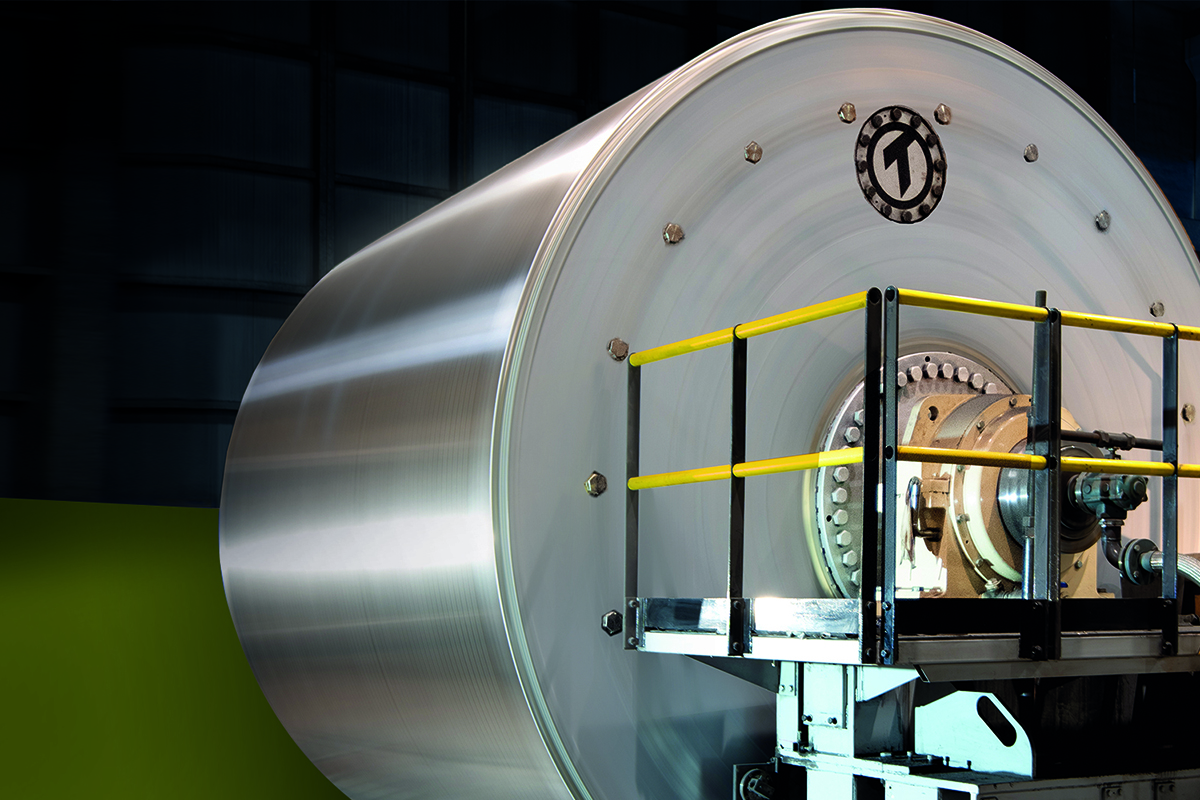LUCCA, Italy
,
June 29, 2022
(press release)
–
Toscotec, the global market leader of Steel Yankee Dryers, introduces TT Induction SYD, a carbon-reduction breakthrough that redefines Yankee dryer technology entirely. TT Induction SYD uses electrical induction instead of steam energy to dry the paper web, thereby cutting direct greenhouse gas emissions to zero. In 2000, Toscotec pioneered a major technological innovation, TT SYD, the first Yankee dryer entirely made of steel. Steel Yankees have since surpassed their cast-iron equivalent to become the benchmark for drying efficiency and safety in the paper industry. TT Induction SYD is now set to be the new game changer in tissue for its capability to use clean energy and slash direct carbon emissions associated with the drying process. A disruptive innovation for dry crepe and TAD tissue machines Luca Ghelli, Toscotec R&D Director, says, “Sustainability is the guiding idea of TT Induction SYD’s design. As a proven industrial technology, an induction system offers multiple advantages when applied to the most energy-intensive section of the tissue machine. The efficiency of this cutting-edge technology will dramatically reduce the carbon footprint of papermaking. Based on our expertise in steam-heated TT SYD and induction systems, we succeeded in developing a more efficient and sustainable steel Yankee dryer.” Substantial carbon reduction with unchanged productivity and paper quality Maximum safety, easier operation, and maintenance For further information, please contact:
With TT Induction SYD, the internal steam distribution and steam/condensate removal systems are entirely replaced by an induction system composed of static coils installed inside the shell and electrical controls and instrumentation located outside for easy maintenance and monitoring. As a result of precise coil geometry, the induction system delivers a very fast and accurate heating effect exactly on the areas of the shell where it is required, while preventing residual circulating currents in other areas.
Steam-heated Yankees use steam energy typically generated by burning fossil fuels. TT Induction SYD uses electrical energy that can be derived from renewable energy sources while delivering the same result, i.e. uniformly heating up the Yankee’s shell in contact with the paper web to achieve dryness. TT Induction SYD is suitable for installation on dry crepe as well as Through-Air-Drying (TAD) tissue lines.
Normally, approximately half of the carbon dioxide emissions produced by a tissue machine originate from the operation of the Yankee dryer. By using clean energy, TT Induction SYD achieves zero direct emissions, while maintaining productivity unchanged and reducing energy consumptions because of the higher efficiency of the induction system. Due to the precise heating of the shell, it also eliminates possible moisture profile issues related to uneven condensate removal, thereby ensuring an improvement in moisture uniformity in both cross direction (CD) and machine direction (MD).
TT Induction SYD was designed without any electrical, mechanical, and radiation risk to ensure maximum safety. Besides offering safe operations, it also clears all issues related to the maintenance of steam-heated Yankees, including pressure vessel’s mandatory and planned controls, maintenance of condensate straw pipes against potential plugging and of special heads for steam and condensate inlet and outlet. The entire Yankee system is simplified in the absence of steam: the heads, the internal surface which is groove-less, and the steam and condensate auxiliary system disappears entirely, including the steam generator with related maintenance and controls and delicate controls for steam quality. TT Induction SYD simply requires relatively easy maintenance on the electromagnetic induction system.
Marco Dalle Piagge, Sales Director, Toscotec Tissue division, marco.dallepiagge@toscotec.com

* All content is copyrighted by Industry Intelligence, or the original respective author or source. You may not recirculate, redistrubte or publish the analysis and presentation included in the service without Industry Intelligence's prior written consent. Please review our terms of use.




